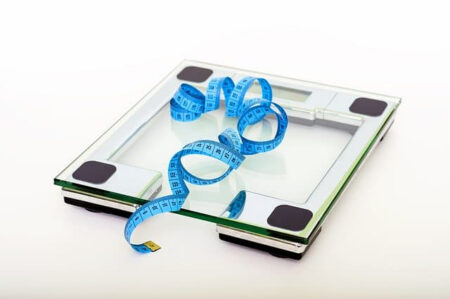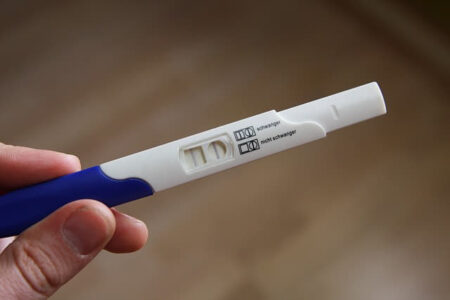The first reason to consider if you have a late period is pregnancy.
However, there appear to be other reasons for a late period.
Why is my period late?
A normal menstrual cycle lasts an average of 28 days, but the cycle differs from woman to woman.
Sometimes it takes a little longer or a little shorter.
There are also women whose periods are not regular at all.
The length of menstruation, the type of bleeding and the period between one cycle and another can differ from woman to woman.
For the woman herself it can also differ every month.
There are cases when the menstrual cycle is late or stops altogether.
It is generally believed that a condition of late menstruation necessarily indicates pregnancy.
However, some women experience a late period with a negative pregnancy test.
It is important to know that there can be several reasons for late menstruation, and in that case you should consult a doctor.
In this post I will discuss 10 reasons for a late period and the natural ways to regulate your cycle.
Stress and tension can affect the menstrual cycle

Stress and tension can arise as a result of changes in the environment or, for example, due to the exam period.
Other reasons for stress can be a change in sleep patterns, in personal life, moving, etc.
Stress can cause a delay or disruption of the cycle, but is usually a temporary phenomenon that disappears on its own.
Disrupting your schedule
If you have a fixed routine, where you get up, eat and go to bed at fixed times, and this routine is suddenly disrupted,
This can also disrupt your menstrual cycle.
For example, if you wake up late at night or work longer hours,
Please note that this may affect your menstrual cycle.
Error in calculating the menstrual cycle
A calculation error is also a common reason for what appears to be a late period.
Many women do not know how to calculate their ovulation day or simply do not bother to do so.
Therefore, they do not always know exactly when their period is due and sometimes wrongly think that it is too late.
If you have not noted the day of your last menstrual period in your diary,
wait a few more days before deciding that your period is late.
Weight changes can cause late periods

Extreme changes in diet, weight gain and weight loss can also lead to late periods.
Especially difficult situations such as extreme diets or eating disorders that lead to malnutrition.
Women who suffer from anorexia, are overweight or have extreme weight gain may sometimes not have periods at all.
It may sound like a blessing, but the opposite is true.
Eventually there will be a regular cycle that indicates that we are healthy.
We should probably thank him more than curse him on the day he arrives.
Polycystic Ovary Syndrome (PCOS)
Polycystic ovary syndrome can cause ovulation problems in women, which can lead to irregular periods in some.
This is a chronic condition, which manifests itself in regular irregular menstruation.
A doctor can diagnose this disease through a hormonal test and an ultrasound.
He may also recommend treatment for this condition.
Medical and hormonal conditions
Heart disease, diabetes or early menopause can affect menstrual regularity.
Hormonal disorders can also affect menstruation,
Certain hormones, such as prolactin or thyroid hormones, can cause late menstruation.
If this is the case, the condition can be diagnosed with a blood test.
Pregnancy and breastfeeding

Sometimes a late period is due to the fact that you are pregnant, a common cause of a delay in menstruation.
If menstruation is a few days late, the first and simple thing you can do is take a pregnancy test.
Breastfeeding can also affect irregular periods.
The hormone prolactin, which is responsible for the production of milk in your body,
can suppress reproductive hormones, causing an irregular menstrual cycle.
Intensive exercise
Exercise is a blessing, but it is important to do it in moderation.
Aside from the risk of stress fractures and injuries, excessive exercise can disrupt menstruation in women.
Exercising for long periods of time sends disturbing signals to the body.
The body responds to distress signals and stops the menstrual cycle.
Interruption and delay of menstruation is common in professional athletes such as runners and cyclists.
Taking certain medications can cause late menstruation
Certain medications that claim to be vegan or other medications that contain substances that affect hormonal activity can affect the regularity of the menstrual cycle.
If you are taking a new medication and a disruption has occurred,
Consult your doctor about the connection between the two.
Thyroid disorders
It is estimated that 20% of all women suffer from thyroid disorders, of which approximately half are not properly diagnosed.
The thyroid plays an important role in metabolism.
Together with insulin and cortisol, thyroxine is one of the three hormones that control our metabolism.
Because thyroid hormones are responsible for metabolism in every cell of the body, a deficiency can affect all body functions.
It can lead to menstrual disorders, irregular periods and lack of ovulation.
Thyroid disorders can also cause prolonged and heavy menstrual bleeding and shorter periods.
In some cases, it can also lead to infertility, loss of sexual desire, many pregnancy complications and recurrent miscarriages.
Home remedies for late period

Fennel seed
Fennel seeds can help regulate menstruation.
In addition, it contributes to the balance of blood circulation and relaxation of the muscles,
including the uterus, so that it can make menstruation itself easier.
Fennel seeds should be soaked in warm water overnight and drunk daily in the morning until menstruation occurs.
Ginger root
Ginger consumption has numerous benefits and one of them is its ability to precede the cycle and get through it with ease.
This herb relaxes the muscles and contributes to the balance of the body.
It is especially effective for cleansing toxins.
The ginger root should be added to your diet or made into an infusion.
Boil a piece of ginger root in water for 20 minutes.
Cover and let cool, strain and drink 3 times a day until menstruation occurs.
You can sweeten this infusion with a little date syrup.
Sesame seeds
Grind roasted sesame seeds or simply eat raw tahini.
Eat a teaspoon of it on an empty stomach two weeks before menstruation is due.
It can help make menstruation regular and easier.
Sesame is rich in vitamin E, which helps cleanse the blood system.
Relaxation and physical activity

Relaxing activities such as meditations, swimming and any action that helps reduce stress can help speed up the cycle and make it easier.
Stress affects us on a physical level, it causes muscle contractions and therefore it can also cause late menstruation and more severe symptoms during menstruation.
A daily break, light physical activity, and disconnecting can help you feel better and precede the cycle.
Physical activity, such as active or even relaxing sports activities, accelerates blood circulation.
Even a half-hour walk a day, daily, can help induce menstruation.
Take a hot essential bath
This is an old and well-known exercise, which also served our grandmothers, and still works.
If you want to accelerate or precede menstruation, take a bath and enjoy the warm water.
You can also add soothing essential oils, such as chamomile and lavender, to your bath.
Not only will a warm bath help you relax after a hard and stressful day,
but it will also help soothe your abdominal muscles, which will stimulate blood flow from the uterus.
If you do not have a bathtub, you can also apply warm compresses to the abdomen.
Foods rich in vitamin C to regulate the menstrual cycle
Vitamin C is known to strengthen the immune system and relieve stress.
Moreover, it has the power to accelerate menstruation.
Vitamin C thickens the uterine lining and therefore ensures that menstruation occurs earlier.
There is a belief that consuming foods rich in vitamin C, or taking a vitamin C supplement, can stimulate uterine contraction so that it precedes menstruation and also causes less pain.
Include vitamin C-rich foods such as citrus fruits, kiwi, broccoli, peppers, papayas, tomatoes, leafy greens and pineapple in your daily diet.


